Recycling resouces
In the 'Recycling resoruces' area,we will consider how to make effective use of limited resources in our lives through experiential exhibitions and introductory exhibitions of Panasonic Group's specific efforts such as factories, products and services.
How can we use limited resources effectively?
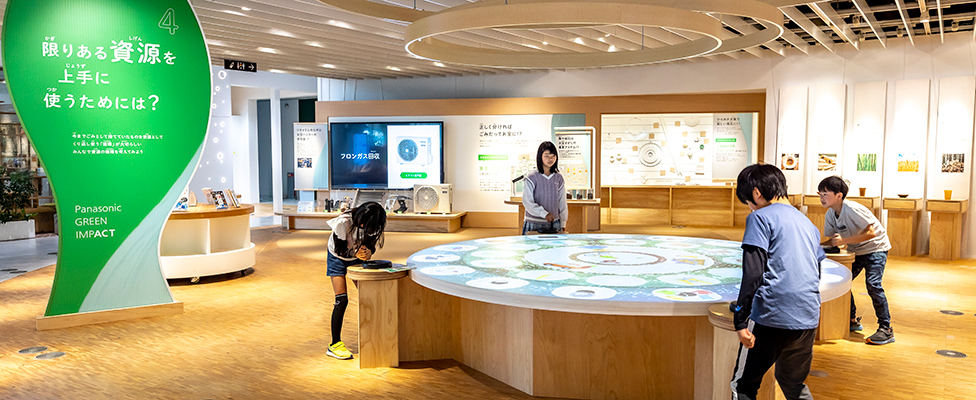
It is said that it is more important to recycle and repeatedly use materials as resources, which used to be discarded as waste.
Let's study effective use of energy and recycle of resources.
Children learn that recycle of resources leads to the reduction of CO2 emissions.
Through these experiences, they start thinking about what they can do by themselves with a new perspective.
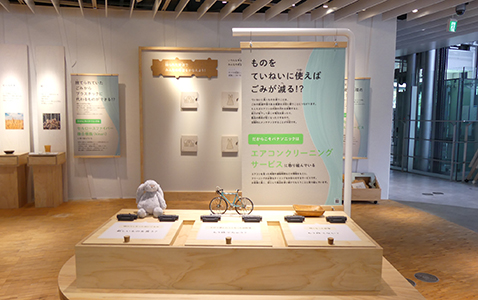
Handle products with care to reduce waste
Using products with care and keeping them for a long time will lead to waste reduction and the effective use of limited resources.
For instance, when left unclean, air-conditioners will need more power to compensate for a decline in performance, resulting in a shorter product lifetimes. Accordingly, it is important to perform regular maintenance.
Therefore, Panasonic Group is striving to promote the air-conditioner cleaning notification service.
Based on information such as the timing of product purchase and product operating hours, this service notifies users of the timing of the necessary cleaning.
We are making efforts to ensure that customers can continue using our products for a long time with peace of mind.
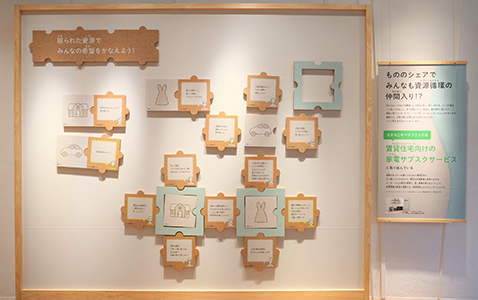
Promote sharing our products and join the resource recycling movement
As consumers, we have been repeating the actions of purchasing, using, and discarding products.
When infrequently used products are owned by a single person, it generates a variety of wastes such as having difficulty finding a storage space and readily discarding them.
Recently, the idea that it is better to borrow what is necessary when needed has gained traction.
Therefore, Panasonic is promoting the consumer electronics subscription service for rental housing.
In rental homes pre-equipped with consumer electronics, residents can enjoy the convenience of advanced and latest appliances from the day they move in.
It is also an environmentally friendly service whereby the manufacturer performs proper repairs to allow consumer electronics to last longer and contribute to the reduction of their disposal.
* Subscription service: A method in which a customer makes a recurring payment at regular intervals for the use of a product or service
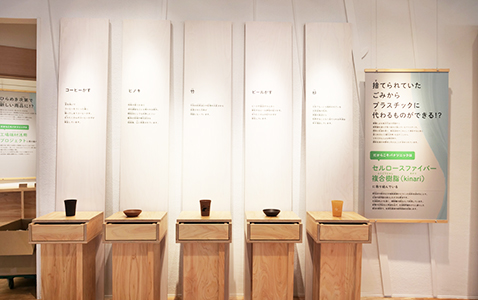
Discarded waste can replace plastics
Marine pollution due to waste dumping has triggered a movement to reduce the use of plastic.
Because plastics are made from petroleum and emit a lot of CO2 (carbon dioxide) in the manufacturing process and when incinerated as waste, it is expected that they can be reused through recycling or have the base material replaced with something else.
For this reason, Panasonic Group is working on the development of cellulose fiber resin.
This eco-friendly material uses less petroleum by mixing materials made from plant resources such as lumber from forest thinning and wood scraps.
It is sturdier than petroleum-based plastics and used to make vacuum cleaner parts.
We aim to reduce the use of exhaustible resources by expanding the application of this material to other products, including consumer electronics and daily goods, and by developing materials that use an even smaller amount of petroleum.
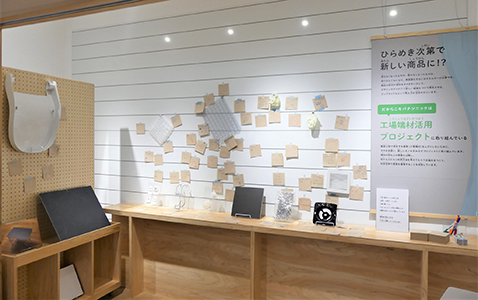
Converting waste into new products through inspiration and new ideas.
Products that are no longer working or in use will become waste when discarded and require energy to be recycled.
The idea of revitalizing such products by applying novel designs and incorporating innovative ideas to create new value without changing product shapes and materials, or upcycling, is now attracting attention.
Therefore, Panasonic Group is pushing forward a project to utilize factory waste!
In order to avoid wasting resources generated in the manufacturing process (factory waste), we are driving a project to utilize them to create something new.
We have established a system to disclose information such as the shapes of waste and seek advice on ways to utilize factory waste from various outside parties, with the aim of recycling resources throughout society.
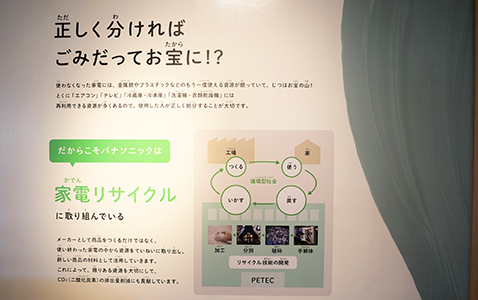
When sorted correctly, even waste can become a treasure
Used home appliances can actually be a treasure trove of reusable resources such as metals and plastics!
In particular, air-conditioners, TV set, refrigerators/freezers, and washing machines / clothes dryers have a lot of reusable resources, and it is important that users dispose of them properly.
For this reason, Panasonic Group is promoting recycle system for home appliances.
As a manufacturer, we do not only make products, but also carefully extract resources from used home appliances and use them as materials for new products.
This helps us conserve limited resources and contribute to the reduction of CO2 (carbon dioxide) emissions.
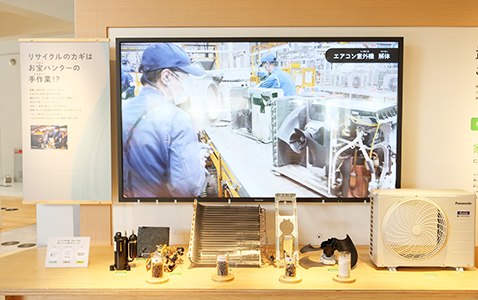
The key to successful recycling is hand sorting by treasure hunters
Home appliances contain a variety of resources such as iron, copper, and plastics.
They can be collected efficiently by carefully disassembling products by hand and sorting components into parts and materials before shattering products with a crushing machine.
Some home appliances use chlorofluorocarbons (CFCs), which are said to be one of the causes of global warming. We make sure to collect products containing this substance to avoid any emissions in the atmosphere.

Let's use a robot to dismantle used home appliances and recycle their resources! NEW
The Panasonic Group has developed the Automatic Dismantling System for Used Appliances that processes air conditioner outdoor units with robots.
Let's play a game where we dismantle the outdoor unit of the air conditioner by controlling a robot in a virtual space.
The extracted materials will be reborn as a different product.
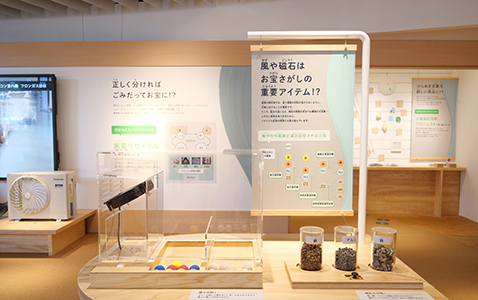
The wind and magnets play a key role in treasure hunting
When recycling resources, it is most important to sort them accurately to avoid the mixture of different types of materials.
This is where machines utilizing material characteristics such as differences in weight will become very useful!
We are also working on the development of recycling technology to effectively extract resources.
